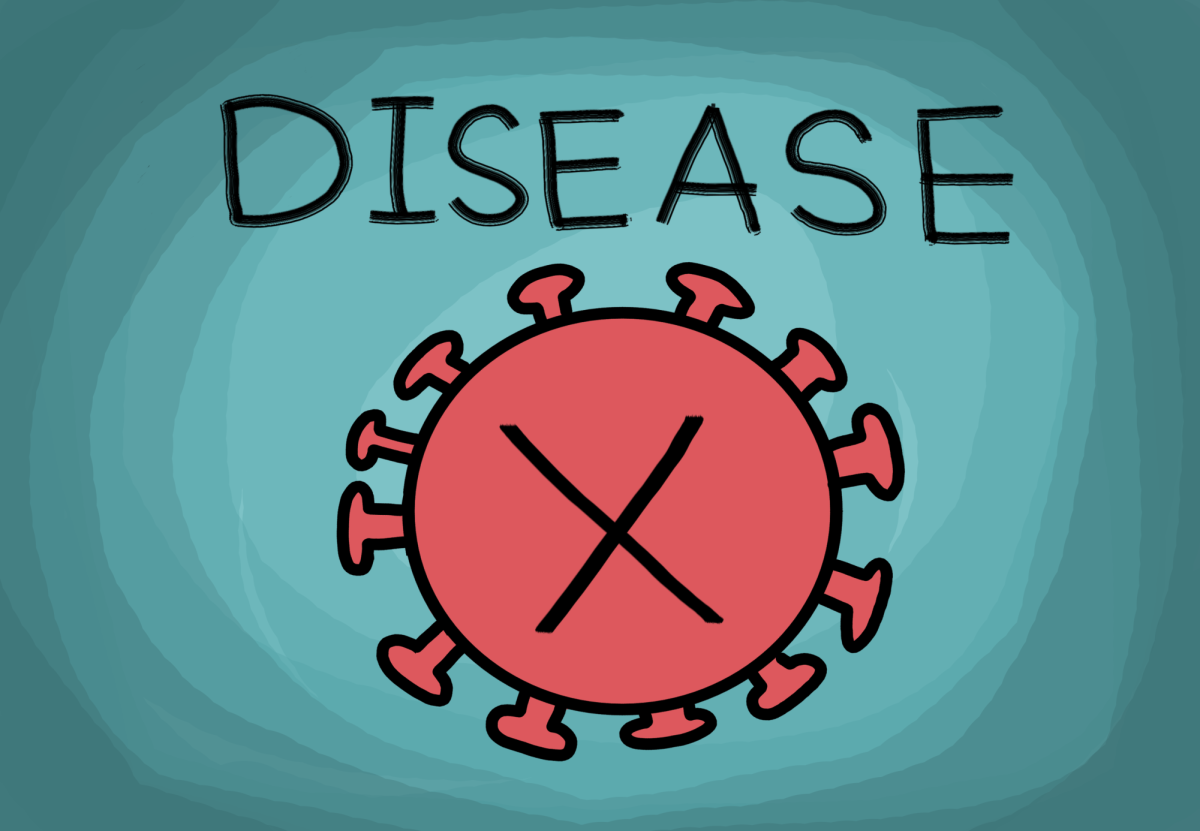To stay prepared for the emergence of a new strain of COVID-19, the World Health Organization (WHO) has focused research on a concept known as Disease X, a hypothetical upcoming disease that scientists are preparing to respond to in the event of another pandemic.
While it is impossible to predict when Disease X will emerge, scientists believe that it could result from a currently unknown pathogen or from a mutation of one of the 25 viral families most likely to produce the next deadly viral threat, such as SARS-CoV-2, Zika, and Ebola. Scientists aim to understand enough about these viral families to have a headstart on producing vaccines and treatments in the case of Disease X emerging from mutations.
“Preparing for future pandemics is necessary given the difficulty of preventing diseases from spreading rapidly in our highly interconnected modern society,” Shin Humphries ‘24 said. “Given the unpredictability of the subject, I think this kind of background research is about the best that can be done.”
The fact that Disease X could emerge from these pathogens that once wreaked havoc presents a daunting future where the next Disease X is a worse continuation of a disease that is already spreading throughout society. A prime example of this is COVID-19, which has new cases every month, with new strains still being discovered and combatted.
“Disease like COVID getting worse sounds scary but it definitely seems possible,” Ano Veal ‘25 said. “Mutations were why COVID was so dangerous because it mutated so fast and it was hard to keep up with, so [the possibility of] it developing into something that could cause another pandemic seems scarily likely.”
In 2022, the WHO released the World Health Organization Research and Development (WHO R&D) Blueprint, which included roadmaps used to find knowledge gaps and set research priorities for pathogens identified as priority for diseases that could cause future outbreaks and pandemics. These guidelines inform developers about specifications for vaccines and treatments and compile the results of diagnostic tests and clinical trials.
“I think that, having had a pandemic quite recently, it is a good idea to be prepared for whatever might come next,” Mikhail Kliachenkov ‘25 said. “I view the preparation that the WHO is making towards preventing a new pandemic very positively as I think it would help alleviate damage caused in the future.”
While Disease X presents an unpredictable future for the world due to its hypothetical nature and the wide array of diseases it could emerge from, proactive interference by the WHO and scientists studying possible pathogens for Disease X presents a hopeful future for preventing another pandemic.













![Holding her plate, Luciana Lleverino '26 steadies her food as Sahana Sakthivelmoorthy '26 helps pour cheetos into Lleverino's plate. Lleverino was elected incoming Webmaster and Sakthivelmoorthy rose to the President position. "[Bailey and Sahiti] do so much work that we don’t even know behind the scenes," Sakthivelmoorthy said. "There’s just so much work that goes into being president that I didn’t know about, so I got to learn those hacks and tricks."](https://westwoodhorizon.com/wp-content/uploads/2025/05/IMG_0063-1200x1049.jpg)
